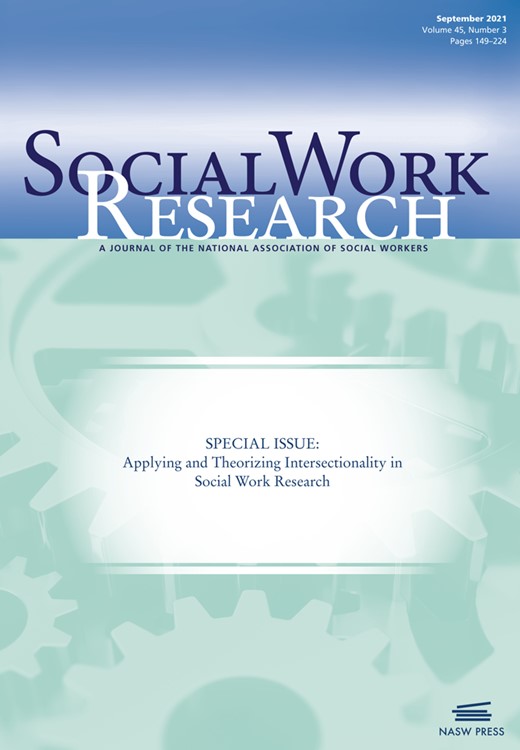-
Views
-
Cite
Cite
Annie Pullen Sansfaçon, Morgane A Gelly, Kimberly Ens Manning, Affirmation and Safety: An Intersectional Analysis of Trans and Nonbinary Youths in Quebec, Social Work Research, Volume 45, Issue 3, September 2021, Pages 207–219, https://doi.org/10.1093/swr/svab009
Close - Share Icon Share
Abstract
This article presents the results of a combined grounded theory and community-based participatory action research project with 54 trans and nonbinary youths (TNBY) residing in the province of Quebec, Canada. The project includes two important sensitizing concepts: intersectionality and recognition. In the research, intersectionality was defined as an approach that explores how people navigate manifold identities (class, race, disability, and so on) in the context of structural oppression. Authors applied an intersectional lens to the recruitment of research participants through an iterative, community-based process, and to the analysis of the oppressive structures that negatively influence the well-being of TNBY and the specific factors that enable TNBY to thrive. Drawing on Honneth’s concept of recognition, authors argue for a contextualized, dynamic, and relational understanding of how well-being is produced. Specifically, they show two presenting needs: one for affirmation and one for safety, access to which springs from resources of privilege that emerge in the environment in which young people are embedded and from which they self-advocate. Understanding the dynamic relationship between these two needs and how they shift according to context is an important component of applying an intersectional approach to supporting TNBY in social work settings.





